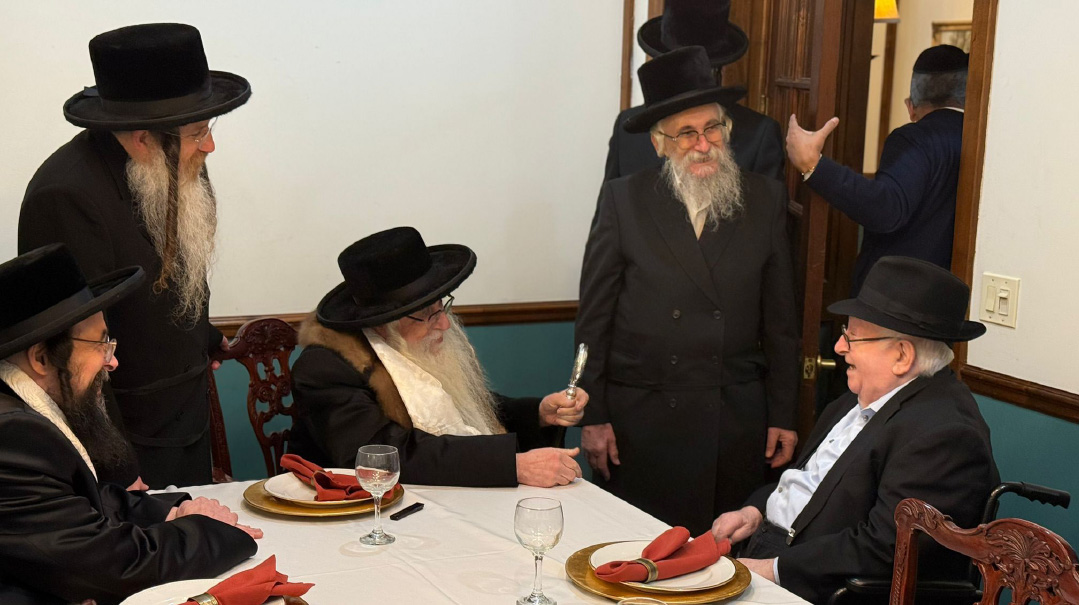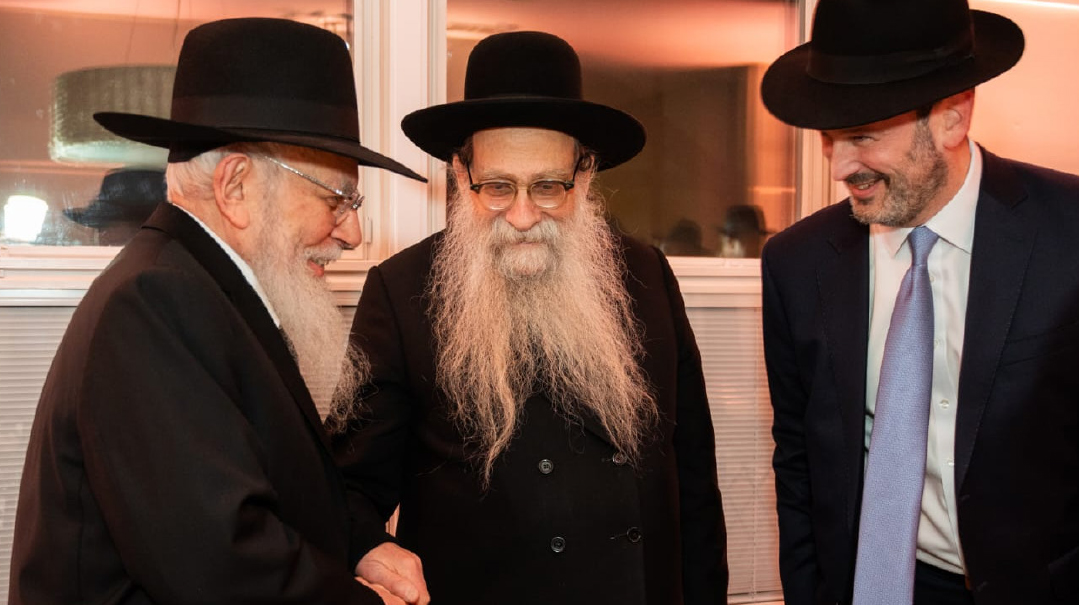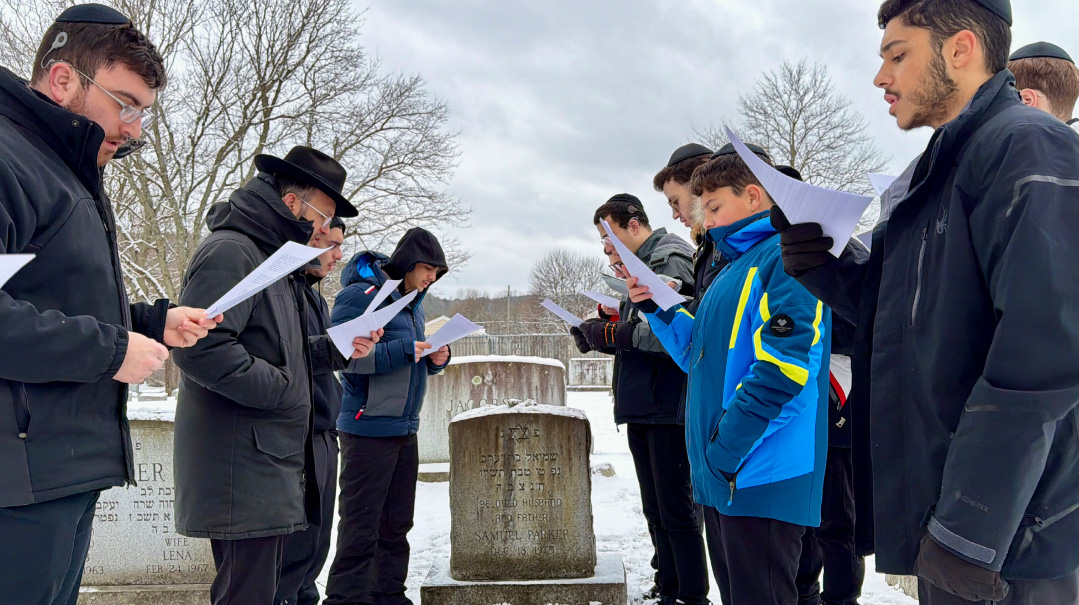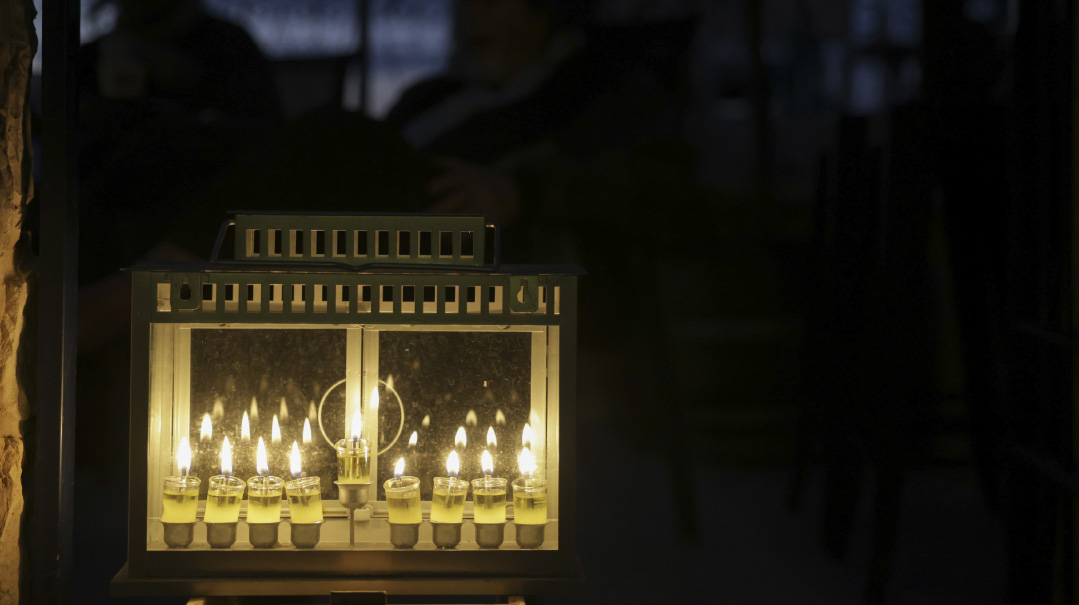The Moment: Issue 1039
| December 3, 2024In a way, the kinnus was the greatest response to the senseless terror
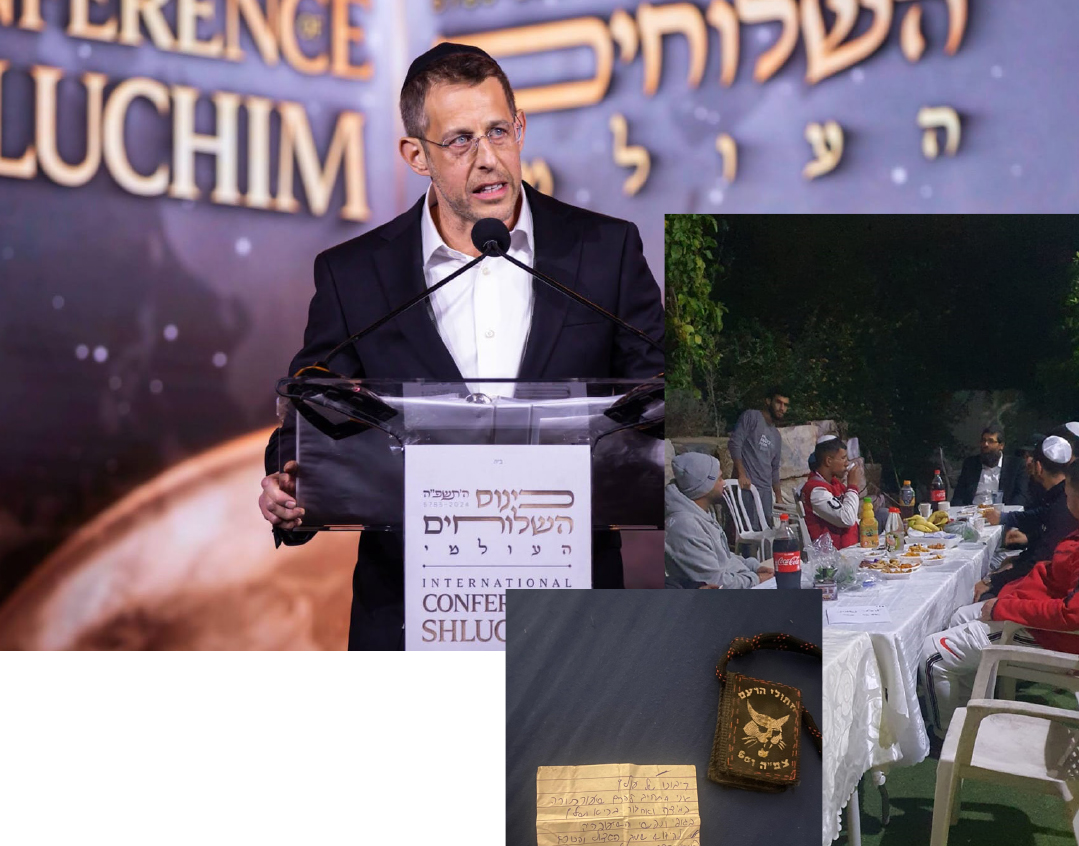
Living Higher
This past Sunday, thousands crammed into the New Jersey Convention and Expo Center for Chabad’s 41st Kinnus Hashluchim, honoring the many hundreds of shluchim from all around the world. The event was especially poignant, coming on the heels of the horrific tragedy one week prior where Rabbi Zvi Kogan Hy”d, Chabad shaliach to the United Arab Emirates, was brutally murdered.
In a way, the kinnus was the greatest response to the senseless terror. The sheer force of energy pulsating throughout the room sent a clear message: We are on a mission and nothing can stop us.
One of the many highlights was the story shared by Dr. Brian Levin, a urologist living in Baltimore. Dr. Levin grew up knowing that he was Jewish, but this knowledge yielded little practical application.
“Every Shabbos,” Dr. Levin shared, “I would see a rabbi with a beard walking down the street. At first, I thought he’d made a mistake, but I continued to see the same man every Shabbos.”
His curiosity piqued, Dr. Levin decided to follow him, and his search led him to a unit in the back of a shopping center, housing the Chabad of Owings Mills. Slowly, Dr. Levin developed a relationship with the shaliach, Rabbi Nochum Katsenelenbogen. Soon, Dr. Levin was putting on tefillin, keeping Shabbos, and leading a fully religious life. But that was just the beginning.
“At first, I was uncomfortable putting on my yarmulke at work,” he said. “But one day, I decided to do it.”
When his Jewish patients asked him about his headwear, Dr. Levin would explain, then follow up with an offer: “Would you like to put on tefillin?”
Dozens of patients donned tefillin for their first time — or the first time since their bar mitzvahs — in Dr. Levin’s office. They’d also recite Shema, shake lulav and esrog, or receive a set of Shabbos candles.
Sitting in a New Jersey convention center, the shluchim who’d come together to celebrate their efforts realized yet again that their work is so much more far-reaching than they may ever know.
In Memory
ON Erev Shabbos, the Torah world lost a prince with the passing of Rav Mordechai Zev Yafen ztz”l, the rosh yeshivah of Yeshivas Beis Yosef Novardok in Flatbush.
Rav Mordechai Zev was the younger brother of Rav Ahron Yafen, the second son to Rav Yaakov Chaim Yafen, grandson of the Alter of Novardok.
When Rav Ahron passed away, leaving a brilliant legacy and his commentary on the Chiddushei HaRitva behind to comfort those he left too soon, Rav Mordechai Zev Yafen stepped up, placing the mantle of responsibility, of leadership, of achrayus squarely on his shoulders. Rav Ahron’s yeshivah became his yeshivah, and Rav Ahron’s family became his family.
When Rav Mordechai Zev returned his neshamah on Friday, 28 Cheshvan, after a terrible illness, every hesped said the same: He was a baal achrayus for one and all. One of his most painful moments in all the prolonged suffering was when he could no longer remember his cheshbonos. But despite that, the other point that every single person being maspid the Rosh Yeshivas Beis Yosef Novardok said was: neumanti hachayim sheli: He sweetened my life by being in it.
Because despite the razor-sharp wit and fiery illuishness of the Yafen dynasty, Rav Mordechai Zev was the sort of person who made the world more pleasant just by being in it.
Those who remember Rav Yaakov Chaim Yafen learning with his two sons recall what can only be described as the milchamto of Torah.
“I’m calling the police,” Rebbetzin Yocheved used to warn her husband and sons.
Such was the bren and kol Torah when the three learned together. Walls would shake, children would hide, and three fair-skinned, light-haired, blue-eyed men would turn brick red as they fought to prove that their svara was, in fact, emes.
And now, at long last, they are together again. May the fire of their learning in the Beis Medrash shel Maalah warm us, bereaved and cold, down here.
A Promise Fulfilled
Uri, an IDF soldier from Moshav Tel Mond who serves in the army’s engineering unit, was sent into Gaza just days after the initial ground operation began. Before entering the war zone, he wrote himself a note, one that he kept in his personal belongings at all times. It read (translated): “Hashem, bring me home safe and healthy and I will establish a Torah shiur in my home.”
Several months later, Uri was discharged from the army safe and sound — yet keeping his end of the bargain was easier said than done. Uri himself wasn’t capable of saying a shiur, and he didn’t know anyone who was.
One evening he traveled to the Kosel where a Lev L’Achim volunteer approached him. Uri related his story to the volunteer, who in turn made his own deal with Uri. “You bring the chevreh, and we’ll send the maggid shiur,” he said.
Uri was all in, and in short order, a new Torah shiur began on the fertile soil of Moshav Tel Mond.
Uri had kept his promise.
(Originally featured in Mishpacha, Issue 1039)
Oops! We could not locate your form.

